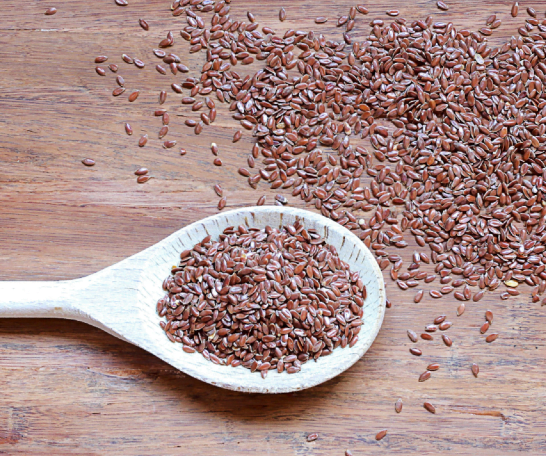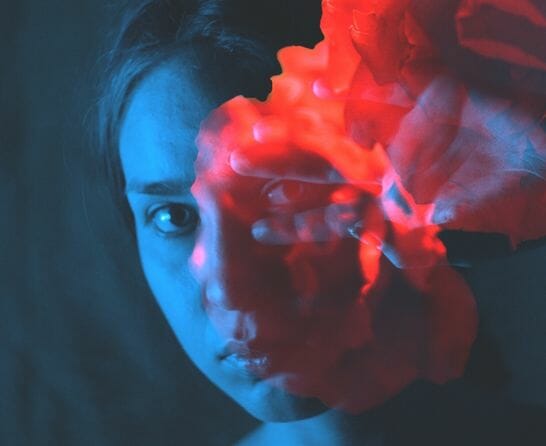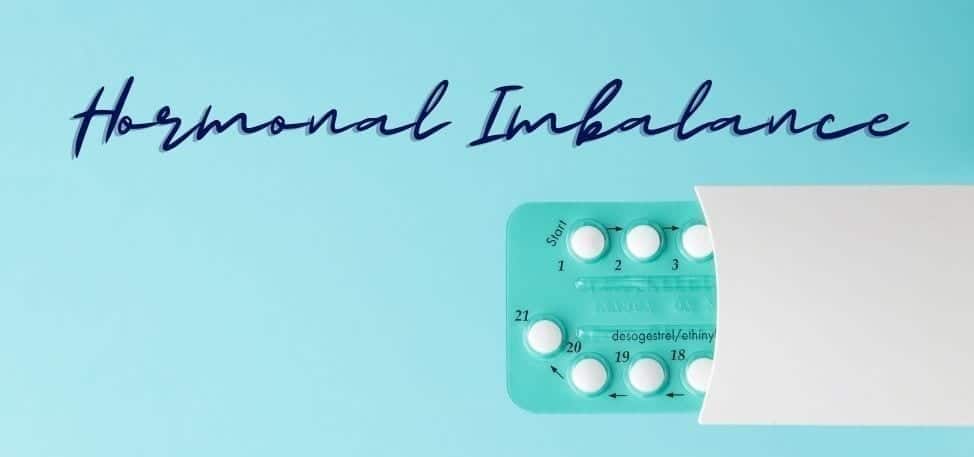Home > Female Body > Phytoestrogens and Breast Cancer: What you need to know


Gang, as October is Breast Cancer Awareness month, we thought it was high time we talked about hormones and breast cancer. Yes, it’s a depressing — and mildly alarming — fact that Estrogen is linked to several types of tumors, and breast cancer is one of them. But Phytoestrogens, or plant-derived Estrogen, have been hailed as both cause and cure. So, what’s the real deal with Phytoestrogens and breast cancer? Here’s everything we know…
Now, if you weren’t aware that some cancers are hormone-related, we don’t blame you. We weren’t exactly hyper-aware of it either. But thanks to Breast Cancer Awareness month, we did some research, and we’re very definitely aware of it now. It’s not all cancers, mind, just the ones involved with reproduction. Which means, alongside breast cancer, cervical, ovarian, and, yes, testicular cancers are often linked to sex hormones.
For those of you who identify as women, sex hormones here break down to Estrogen and Progesterone. And if you identify as male, it’s, you guessed it, Testosterone.
If you’ve been diagnosed with breast cancer, there’s a good chance your tumor is related to hormones. In fact, around 80% of breast cancers are what medical types call hormone-receptor positive tumors. Which is a nice way of saying that they’re using the Estrogen, and in some cases, the Progesterone, you naturally produce to grow.
These hormone-sensitive breast cancers are, generally speaking, more likely to occur in Postmenopausal types. That group can, of course, include those who’ve lived through “natural” or early Menopause. But it also includes anyone who may have had their ovaries removed because of PCOS, Endometriosis, or tissue damage.
At this point, you may well be wondering why cancers that essentially feed on Estrogen are so prevalent once you’ve stopped producing quite so much Estrogen. And if you are, that is an excellent point.
Because, surely tumors like that need tons of Estrogen to keep going, and it’s kind of in short supply once you’re Postmenopausal. But here’s the kicker: Once your ovaries are fully retired, you don’t stop producing Estrogen. If just comes from your fat cells now. Which is totally fair, right?
And wouldn’t you know it, your breast tissue just happens to contain more of those Estrogen-producing fat cells than other parts of your body. Then, as you age, two super-annoying things happen. Firstly, the older you get, the more your exposure to Estrogen becomes super long-term. Secondly, and this seems entirely unfair, the longer you continue to stay alive, the more Estrogen your breast tissue produces. Suck much Postmenopause?
As you’ve probably guessed, that particular Estrogen situation can result in the perfect environment for a tumor. Which is why the majority of breast cancer patients with hormone-receptor positive cancers are Postmenopausal.
So what have Phytoestrogens got to do with any of this? Well, as part of the treatment for those cancers, patients are often prescribed Estrogen-blocking medication. This can help slow the growth of the tumors, by starving them of the hormones they need.
And, of course, good diet and nutrition are essential when combatting cancer and dealing with the effects of chemo and radiation therapy. But what happens when you’re eating super-healthy food that contains Estrogen of its own?
No, you read that right. Plants have to deal with Estrogen as well. We’ve no idea if it’s also a monthly pain in their reproductive stuff, but they definitely have it.
Technically, research is still very much ongoing, but there seems to be a consensus emerging. And it’s that, for the most part, eating a phytoestrogen-rich diet isn’t always a terrible idea if you’ve been diagnosed with a hormone-sensitive tumor. Now, there are some caveats here, because not all phytoestrogens are equal. Some can add to your hormone levels, while others can actually block certain hormones.
Some tumors, it seems, respond to those phytoestrogens by slowing their growth. Which is incredible. We sort of knew that your body can, and often does, treat Phytoestrogens as if they were your own, but this clearly is an avenue that needs just a ton more research.
And it’s just possible that, having eaten those phytoestrogens regularly over the course of your life may offer some small protection against developing breast cancer. So which plants are we talking about? We’re glad you asked…
Now, let’s be clear, gang. We’re in no way saying that eating phytoestrogens will prevent, cure, or otherwise any sort of cancer at all. But they can definitely help with your overall health, and maybe, just maybe, be of some other hormone-related benefit.
As with all things medical, there’s a very definite flip side to the Phytoestrogen party. And that’s because it’s also possible that they can in fact aggravate hormone-sensitive tumors. For instance, as much as we all love Soy, evidence from South Korea suggests it can actually increase the growth rate of an Estrogen-receptor positive tumor. Which is crazy.
And means that eating Phytoestrogens is definitely not a good idea if you’ve had that diagnosis. The research is still coming, though, so watch this space.
That very much depends on your diagnosis. If you’re hormone-receptor positive cancer-free, then all things in moderation, and you shouldn’t see any harmful effects from having Phytoestrogens in your diet.
If, though, you have been diagnosed with this exact type of tumor, that’s a decision for you and your healthcare team. You may well decide to add a supplemental version to your diet; or you may be advised to steer well clear. Whatever you decide, please take care of you. And know that we’re with you all the way.
As always, gang, if you’ve got concerns about your breasts or any aspect of your hormonal or sexual health, please talk to a healthcare type. And remember to check your breasts regularly — it could be the difference between early detection and a much longer treatment process. We need you all fighting fit right now Hormonas, there’s a lot to get done.
Disclaimer: This website does not provide medical advice. The information, including but not limited to, text, graphics, images and other material contained on this website are for informational purposes only. No material on this site is intended to be a substitute for professional medical advice, diagnosis, or treatment. Always seek the advice of your physician or other qualified healthcare provider with any questions you may have regarding a medical condition or treatment, and before undertaking a new healthcare regimen, and never disregard professional medical advice or delay in seeking it because of something you’ve read on this website.

-


Dr Singh is the Medical Director of the Indiana Sleep Center. His research and clinical practice focuses on the myriad of sleep.

What are PMS and PMDD? Whether you’ve just started your period or have had it for years, you’ve probably experienced some physical symptoms and mood changes before it began. While you may have heard of PMS, most likely not in

Your period: The lowdown When it comes to menstruation, there aren’t different period stages, because your period is actually a part of the follicular phase. If you’re confused, don’t worry; we’ll explain more. For many women, the wording is where

What is hormonal imbalance? It is a simple way to say that your hormone levels are significantly higher or lower than what is expected for your age and the time of testing. Keep in mind that it is not a
Hormona© 2025, All Rights Reserved
Privacy Overview
| Cookie | Duration | Description |
|---|---|---|
| cookielawinfo-checkbox-analytics | 11 months | This cookie is set by GDPR Cookie Consent plugin. The cookie is used to store the user consent for the cookies in the category "Analytics". |
| cookielawinfo-checkbox-functional | 11 months | The cookie is set by GDPR cookie consent to record the user consent for the cookies in the category "Functional". |
| cookielawinfo-checkbox-necessary | 11 months | This cookie is set by GDPR Cookie Consent plugin. The cookies is used to store the user consent for the cookies in the category "Necessary". |
| cookielawinfo-checkbox-others | 11 months | This cookie is set by GDPR Cookie Consent plugin. The cookie is used to store the user consent for the cookies in the category "Other. |
| cookielawinfo-checkbox-performance | 11 months | This cookie is set by GDPR Cookie Consent plugin. The cookie is used to store the user consent for the cookies in the category "Performance". |
| viewed_cookie_policy | 11 months | The cookie is set by the GDPR Cookie Consent plugin and is used to store whether or not user has consented to the use of cookies. It does not store any personal data. |
